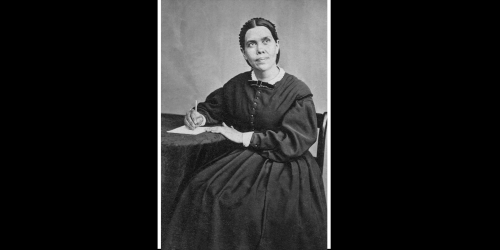
And at the forefront of those pointing the church in new directions was Ellen White. While she never used the word “Trinity,” her writings in the 1888 era and beyond are full of Trinitarian phrases and concepts. She noted, for example, that “there are three living persons of the heavenly trio, . . . the Father, the Son, and the Holy Spirit” (Evangelism p. 615). And in 1901 she wrote of “the heavenly dignitaries — God, and Christ, and the Holy Spirit” (ibid. p. 616). Repeatedly she referred to the Holy Spirit as the “third person of the Godhead” (ibid. p. 617; Desire of Ages p. 671). And she had no doubt “that the Holy Spirit . . . is as much a person as God is a person” (Evangelism p. 616).
In regard to Christ, Ellen White moved infinitely beyond Waggoner, Smith, and most other Adventists of her day when she described Jesus as not only being “equal with God” but as being “the pre-existent, self-existed Son of God” (ibid. p. 615). He had been with the Father “from all eternity” (Review & Herald, April 5, 1906).
Perhaps Mrs. White’s most controversial and surprising statement for Adventists in the 1890s was a sentence in her book on the life of Jesus in which she noted that “in Christ is life, original, unborrowed, underived” (Desire of Ages, p. 530, italics supplied). That statement caught the denomination off guard, and some wondered if she hadn’t left the faith.
We cannot have the slightest doubt that Ellen White was at the very forefront of those who sought to Christianize Adventism in its approach to the Godhead.
But, it is crucial to note, she never solved any problems and she never developed a theology of the Trinity. Rather, she sprinkled her writings with statements that led the ministers and church members to turn to their Bibles to restudy the topic for themselves.
Father in heaven, we are thankful today for a Christ sufficient to save and a Holy Spirit adequate for His redemptive task.
George R. Knight is a retired professor of Church History at the Adventist Theological Seminary at Andrews University. This article is from his book, Lest We Forget, a daily devotional, published by the Review and Herald Publishing Association, page 289.